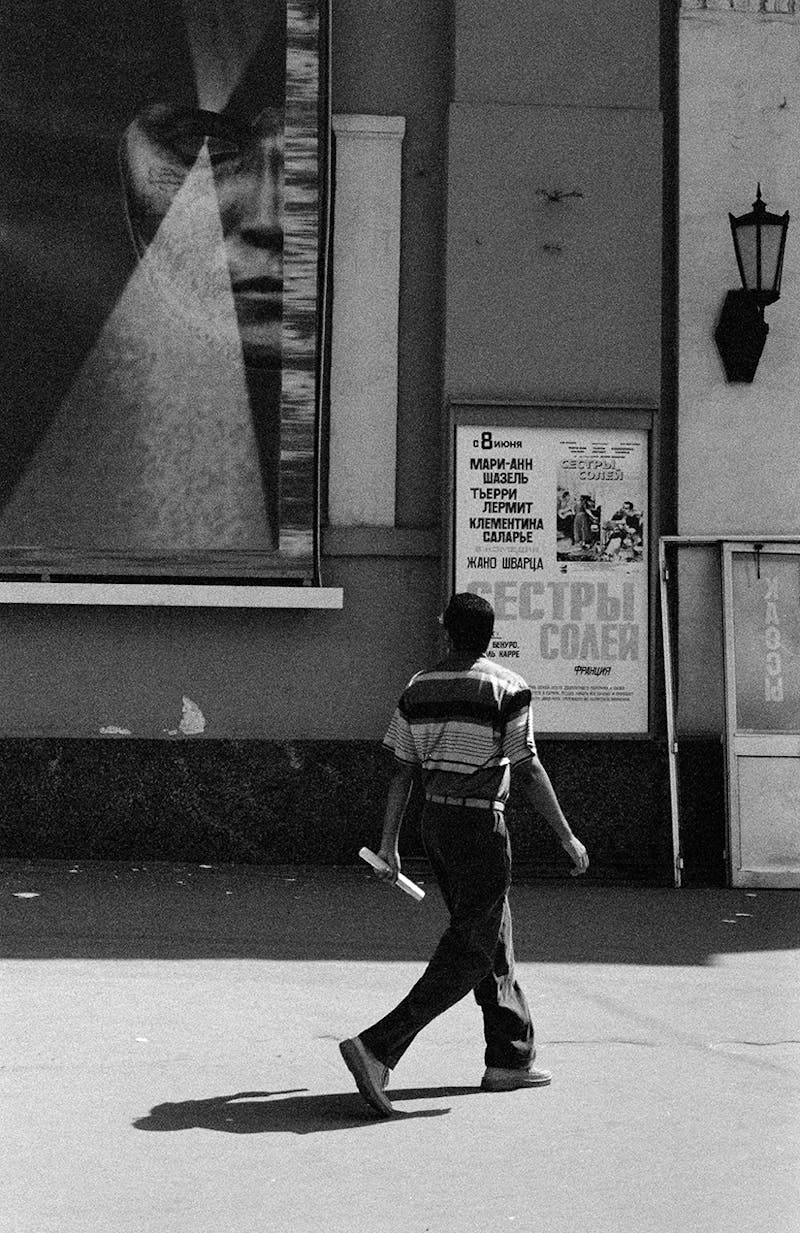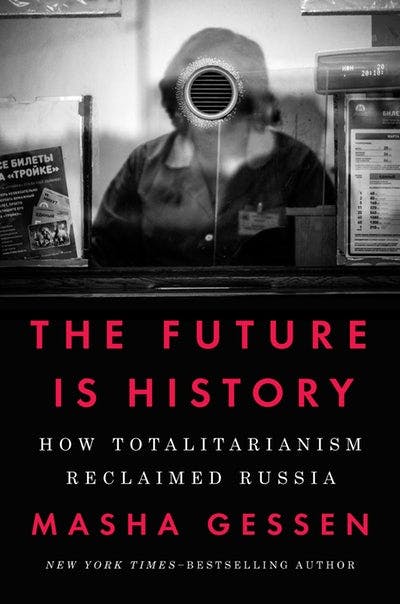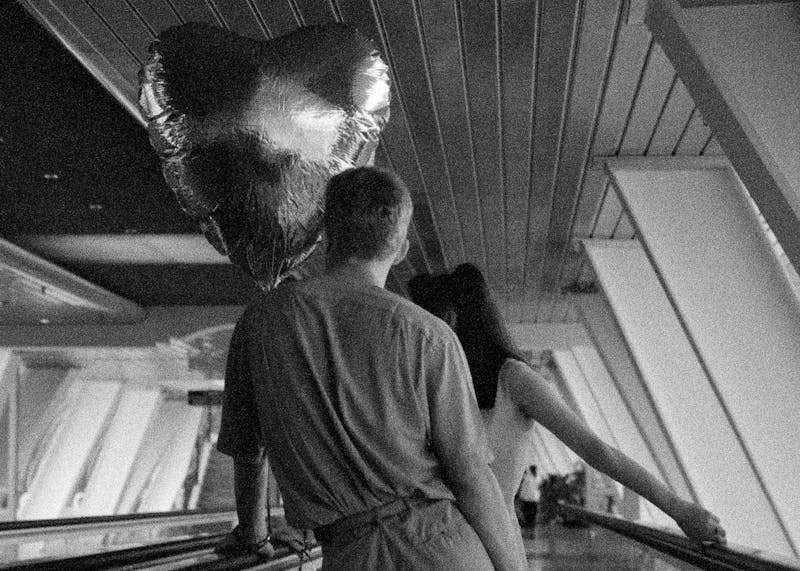
In 1997, Deputy Secretary of State Strobe Talbott, the Clinton administration’s lead official on all matters Russia, gave a speech at Stanford University on American policy toward Moscow. He admitted, in not so many words, that persuading the erratic President Boris Yeltsin to keep on course with economic reform and progress toward democracy was a daunting task. But Talbott declared himself optimistic nonetheless. His main reason, he said, was “generational,”
or to be even more blunt, biological. The dynamic of what is happening in Russia today is not just Westernizers versus Slavophiles; it is also young versus old—and the young have a certain advantage in at least that dimension of the larger struggle.
I was a correspondent in Moscow at the time I read Talbott’s speech, and I remember being struck by its obtuseness—a feeling that has remained with me since. I wondered how younger Russians would react to a U.S. diplomat openly expressing the hope that their grandparents and parents would die off as quickly as possible and so open the path to an American vision of progress.
There was nothing especially original about my question. Communists and ultranationalists were already trading widely in conspiracy theories that the country’s startling demographic collapse, unprecedented in peacetime, was the direct result of American-engineered plots “to weaken Russia.” In reality, of course, a “weakened Russia” was much more likely to lose effective control over its vast arsenals of weapons of mass destruction, drastically increasing the possibility that some might fall into terrorist hands. Such an outcome hardly seemed to be in the interests of the West or anyone else. A stable Russia, prosperous and democratic, made for a much better bet—assuming, of course, that someone had a viable plan for bringing it about.
By the time of Talbott’s speech, such a scenario was looking distinctly improbable. During my years in Moscow, I did meet quite a few Russians who placed their faith in the principles of political and economic freedom, though they were clearly members of a small minority. Strikingly little evidence, however, supported the notion that young people were the self-evident constituency for a liberal future. Most of the 20-somethings I met—and especially those from outside of Moscow and St. Petersburg—expressed strongly nationalist views. Though they welcomed the freedom to travel and consume, they just as often mourned the collapse of the Soviet Union. For those with little memory of the privations of the socialist system, and who had experienced the Gorbachev and Yeltsin period primarily as a time of political chaos and economic upheaval, such seemingly paradoxical positions made perfect sense.
In her excellent new book on Russia’s transition from the faltering democracy of the 1990s to the Putinist present, Masha Gessen shares the tale of the sociologist Yuri Levada, who conducted a wide-ranging survey of Soviet public opinion over this time. No one had dared undertake a project of this kind in the Soviet Union before. But perestroika gave Levada a rare chance. In 1987, he and his colleagues sent out thousands of questionnaires to citizens, filled with queries (When did people like to celebrate? What were their greatest fears?) designed to tease out evidence of changing mentalities. From their answers, Levada concluded that the Soviet citizen of the 1980s—or “Homo Sovieticus,” as some rather archly referred to it—was an inherently endangered species. The generations shaped by Stalinist terror and Brezhnevite stasis were now giving way to a younger, more confident cohort. Concluding that Homo Sovieticus was “a dying breed,” whose demise would spell the collapse of the USSR itself, he set out to chart the shift in attitudes that, he predicted, would accompany this dramatic transformation.
This effort was so significant, Gessen argues, because the Soviet Union was a place that did not know itself. The dictates of Marxist ideology gave little space to divergent disciplines such as sociology, psychology, or philosophy. Only with the juddering transition to democracy could Russia begin the gradual acquisition of collective self-knowledge. Gessen opts to tell this story through the lives of seven figures: the sociologist Lev Gudkov, one of Levada’s closest collaborators; Seryozha (she refers to some of her characters only by their informal first names), the grandson of an architect of perestroika; Zhanna, the daughter of a prominent liberal politician; Marina Arutyunyan, a woman who discovers her vocation as a psychoanalyst; Masha, a young woman who becomes an organizer of anti-government protests; Lyosha, a provincial professor whose discovery of his gay identity leads him to establish the first formal program of gender studies in the country; and a frustrated academic by the name of Alexander Dugin, who becomes the leading ideologue of a virulent new strain of Russian ultranationalism.
All seven come from a well-educated, relatively prosperous milieu that gives them the skills and self-awareness to comment on their own experiences with a sense of clarity. This privileged background makes for a rather narrow focus: I could never quite escape the sense that I was viewing Gessen’s story through a telescope rather than a big, broad window. The group is noticeably lacking in businesspeople, bureaucrats, or members of the security forces—people who were, one might argue, just as instrumental in shaping the fate of Russia after the USSR. Yet Gessen’s cast of characters tell a powerful story of their own, giving us an intimate look into the minds of a group crucial to understanding the country’s brief experience of democracy and of the authoritarian regime that follows.
Of Gessen’s seven characters, four are born in the 1980s and, coming of age in the post-Soviet period, they seem, at least at first, to herald a change in attitudes. Lyosha, the gay rights activist, hails from the hardscrabble town of Solikamsk in the Ural Mountains, 1,000 miles to the east of the capital. Growing up in the 1990s, Lyosha flourishes. Taking ready advantage of new freedoms, he manages to explore his own identity, connecting with a network of gay activists across Russia and beyond. He persuades some of the more open-minded scholars in his orbit to accept sexual identity as a subject worthy of study. He even ends up creating a Gender Studies Center at his university in Perm—a city that was once home to a Stalinist concentration camp.

Zhanna, the daughter of the liberal politician Boris Nemtsov, experiences the 1990s at first as a period of dizzying rise in her father’s political fortunes. He makes a name for himself in the provincial city of Nizhny Novgorod, but the family soon makes the move to Moscow. There for a time he’s even designated as Yeltsin’s official successor (an odd status in what is ostensibly, at this time, an electoral democracy). Seryozha, who also comes from the ruling class, develops his own sense of politics during this period. For him the changes brought by the collapse of the Soviet Union are jarring: He watches his grandfather, a Gorbachev aide, struggle with the rise of Vladimir Putin and the fading of a comparatively open society. Masha, by contrast, comes from an intensely intellectual family that shows little interest in politics; her own political awakening comes as she confronts the deepening corruption and declining social mobility of the New Russia. All three of them exemplify the openness to change that typified many members of the educated, urban elite at the time.
By the end of the first decade of the twenty-first century, Lev Gudkov, the sociologist, realizes to his horror that his mentor Levada’s predicted demise of the Soviet personality type has proven a terrible illusion. Or, to put it differently, Talbott’s “biological” solution hasn’t materialized—just the opposite, in fact. As the data from myriad national surveys had begun to reveal, the totalitarian mind-set was far more deeply ingrained than the optimists had assumed:
This was Gudkov’s depressing and, he had to admit, radical idea: The last century could be viewed as a continuity, with periodic bumps of “aborted modernization,” and the society he had been studying his entire adult life had stayed essentially the same. What made this idea radical was that no one wanted to hear it.
Gessen’s characters find themselves confronting the startling resilience of the old attitudes in a variety of ways. But it is arguably Lyosha’s experience that most vividly exemplifies the trend Gudkov observed. Living as an openly gay man, he suffers as Putin’s rise gradually puts homosexuals squarely back on the state’s official enemies list, targeted by the ultra-reactionary Kremlin as exemplars of presumed “Western decadence.” Lyosha’s university colleagues begin to treat him differently as they sense the shifting of the political wind; as the official narrative increasingly demonizes gays, he finds himself the target of a revived Soviet culture of snitching and craven pandering to the powers that be. Heartbreakingly, Lyosha’s tale of self-discovery takes him from tentative emergence to uncertain triumph to resounding defeat. By the end of Gessen’s reporting, Lyosha has emigrated to the United States, where he is now living a second life as a gay activist in the Russian-speaking neighborhoods of Brooklyn.
Some of the most powerful parts of Gessen’s book are moments of individual revelation. In March 2008, Seryozha flies from Kiev, where he’s taken up temporary residence, to Moscow purely for the sake of casting a vote in that year’s presidential election. After an exhausting trip from the airport into the city, he spends 50 minutes waiting in line for subway tickets. The tickets are cheap, and he has plenty of money, so he conjures up a small rebellion: He buys 60 tickets and starts handing them out to others for free. The police immediately take him into custody, even though he hasn’t actually broken any statute. First they reproach him for “reselling” tickets, then they rebuke him for potentially getting the cashier in trouble. “What do you think you are, God?” one of them asks.
The incident reveals a social mechanism that is deeply entwined with habits of long-established totalitarian reflexes. Levada once memorably described it as “collective hostage-taking”:
It turned everyone into an enforcer of the existing order, independent and often outside of any law. In the case of the Metro queue, the police officer instinctively sensed that it was his job to ensure that all passengers remain in a state of equal misery, and to prevent any attempt at self-organization. At the polling place, the ballot—with the absurd, almost virtual candidate in first place—turned every voter into a co-conspirator. By casting a ballot one affirmed the legitimacy of the exercise.
The story of Masha, whose political coming of age gradually brings her to a key organizational role in the epochal anti-government protests of 2011 and 2012, shows how a new generation of activists tried nonetheless to shore up democracy—and was brutally suppressed by Putin’s regime for its troubles. Born in “Orwell’s year” of 1984, Masha embarks on a rebellion against the corruption and stagnation of the Putin era, leading her to organize one of the most notorious recent protests, on Moscow’s Bolotnaya Square. The police ultimately charge her with “inciting a riot.” (She is later amnestied.) During this same period, Zhanna watches as her father and others choose the path of principled opposition to Putin and his KGB aristocracy and end up paying for it, in some cases with their lives. One of the low points in Gessen’s book comes in February 2015, when Zhanna’s father, Boris Nemtsov, is shot dead on a bridge in full view of the Kremlin.
Many social scientists, Gessen notes, are wary of using the word “totalitarian” to describe post-Soviet Russia, preferring terms like “hybrid regime.” Yet the startling durability of “Homo Sovieticus” and many Soviet-style institutions is in itself a feature of a totalitarian state. At one point in 2015, we see Gudkov studying apparently divergent survey data: Putin’s popularity is rising even as consumer expectations, battered by sanctions and low oil prices, continue to slide. It’s totalitarian psychology that helps to explain why the two things actually go together. Gudkov had “come to the conclusion,” Gessen writes, “that scarcity was essential for the survival of a totalitarian regime.”
The return of totalitarianism in Putin’s Russia was not, Gessen shows, inevitable. It required architects, one of whom Putin found in the ultranationalist academic Alexander Dugin. It also required opportunity, which Putin’s predecessors created through a series of missteps.
The government of Boris Yeltsin, while genuinely progressive in some ways, was hamstrung from its beginning by a failure to solve the lingering economic catastrophe it inherited from Soviet times. Aware of his ebbing popularity, Yeltsin ultimately eschewed putting the Soviet Communist Party on trial; efforts to engage in a meaningful truth and reconciliation program, which might have helped to make Russians more aware of the grim realities of the past, were deferred. As Gorbachev’s attempt to create a more humane (but still Communist) Soviet Union foundered on the two-pronged resistance of conservatives and Yeltsinite liberals, Alexander Yakovlev, Seryozha’s grandfather, was appointed chair of a Rehabilitation Commission, devoted to documenting the horrors of the Stalinist era and helping its victims. But by 1991 the Commission lost its funding and, over time, it became clear that Yeltsin no longer intended to expend the political capital needed to reckon with a painful history.
The economic disruptions of the 1990s harmed the prospect of democracy in a second important way. Between the hyperinflation of 1991 to ’93 (which destroyed the savings of many citizens, especially the elderly) and the devaluation and financial crisis of 1998 (which devastated the green shoots of the nascent market economy), many ordinary Russians began to identify “democracy” with impoverishment and rank injustice. The irony, as Gessen shows, is that this “democracy” was never especially liberal to begin with—certainly not after 1993, when Yeltsin was forced to turn tanks and artillery on conservative rebels in the same Russian parliament building where he had defied the coup attempt of 1991.

After Putin assumed the presidency in 2000, he moved slowly and methodically to consolidate his position, gradually stripping rival oligarchs of their media properties and their political power. He placed his allies—his longtime friends from St. Petersburg as well as his associates from the Soviet-era secret police—in crucial spots in the bureaucracy, where they often wielded huge sway over large sections of the economy. Aside from a few vague allusions to Soviet and Russian greatness, Putin made little reference to ideology along the way.
It was Alexander Dugin, a once-marginal nerd, who provided the necessary intellectual underpinning for this old-new system. Spurred on by his study of Heidegger and European identitarians, Dugin rediscovered and celebrated the radically anti-Western strain in Russian intellectual history. He embraced the “ethnogenetic” theories of Lev Gumilev, the former dissident who viewed Russia as a sort of mystical hybrid of the most powerful cultural traits of Europe and Asia. Dugin celebrated the presumed superiority of what he began to call the “Russian World” (a phrase now widely used by the Putin regime) and bitterly denounced the United States and other western democracies for their diabolical plans to impose their allegedly “alien” values on a “traditional values civilization.”
Along the way Dugin has called openly for the “annihilation” of liberal “traitors” such as Nemtsov—whose murder can be seen as indirect confirmation of Dugin’s influence. Though many have overstated the extent of direct contact between Dugin and the Putin government, there’s little question that Dugin has left a lasting mark on the regime’s thinking and terminology. And just in case there are Americans who still smugly insist that we’re immune to this sort of thing, consider the fact that Dugin recently got a considerable chunk of airtime on Alex Jones’s Infowars, a web site approvingly cited as a source by none other than President Donald Trump.
Even though I often felt nauseated by Gessen’s dissections of the workings of Putinism, I finished the book with an unexpected sense of hope. Why? The apologists for despotism may appear to have won the battle, but not the argument. As Gessen notes in her epilogue, young Russians keep showing up in their thousands to protest—and to be arrested. In keeping with a long and moving Russian tradition, anonymous supporters keep showing up to place new flowers and mementos on the bridge where Nemtsov was gunned down—even though the authorities keep removing them. And when his daughter Zhanna, now living in German exile, decided to award an annual prize to celebrate courage and determination in fighting the Putin regime, she found “there was stiff competition for the award.” Change in Russia won’t, as Talbott predicted, come about naturally, but it could result from struggle.